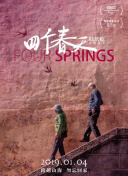


The FIFA World Cup is a quadrennial international football tournament that captivates the world with its exhilarating matches and passionate displays of national pride. As the most-watched sporting event globally, the World Cup brings together teams from around the globe to compete for the illustrious trophy.
One of the remarkable aspects of the World Cup is the cultural exchange that takes place on and off the pitch. During the tournament, players from diverse backgrounds come together, showcasing their unique playing styles and techniques. This melting pot of football cultures allows spectators and fans to witness a symphony of tactics, skills, and strategies from different corners of the world.
More than just a sporting event, the World Cup becomes a platform for nations to display their identity and heritage. The distinct kits adorned with national colors, flags waving in the crowds, and passionate chants from supporters all contribute to a vibrant celebration of national pride. The World Cup serves as a reminder of the power of sports to unite people across borders and foster a sense of belonging.
The World Cup has given us countless legendary moments that live on in football folklore. From Diego Maradona's "Hand of God" in 1986 to Zinedine Zidane's headbutt in 2006, these events have become part of the tournament's rich history. Memorable goals, such as Mario Götze's winning strike in the final of the 2014 World Cup, evoke a range of emotions and are etched into the collective memory of football fans worldwide.
The hosting of the World Cup brings economic benefits to the chosen host nation. The influx of tourists, increased spending on accommodation, transportation, and merchandise, as well as the creation of jobs, have a positive impact on the local economy. Moreover, the host country often develops or improves its infrastructure, including stadiums, transportation networks, and tourist attractions, leaving a lasting legacy even after the tournament concludes.
Football has the power to transcend social, cultural, and political barriers. The World Cup creates a sense of unity and togetherness among people from various backgrounds. During the tournament, fans gather in public spaces, bars, and stadiums, chanting together and sharing their love for the beautiful game. This collective experience promotes a positive atmosphere that fosters friendships and understanding among people who may otherwise have little in common.
Perhaps one of the most significant impacts of the World Cup is its ability to inspire young footballers and fans alike. As they witness the skill and determination on display, youngsters dream of emulating their favorite players and representing their countries on the international stage. The World Cup serves as a catalyst for the growth of grassroots football, encouraging participation and providing hope for future generations of talent.
In conclusion, the World Cup is not just a tournament but a global celebration of football. It promotes cultural exchange, showcases national identity, and creates unforgettable moments. With its economic impact, social unity, and the inspiration it provides to the next generation, the World Cup continues to engrave itself in the hearts and minds of football lovers worldwide.
